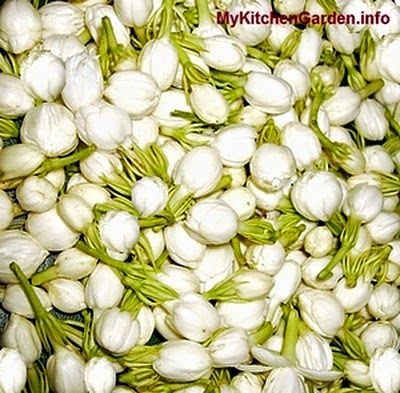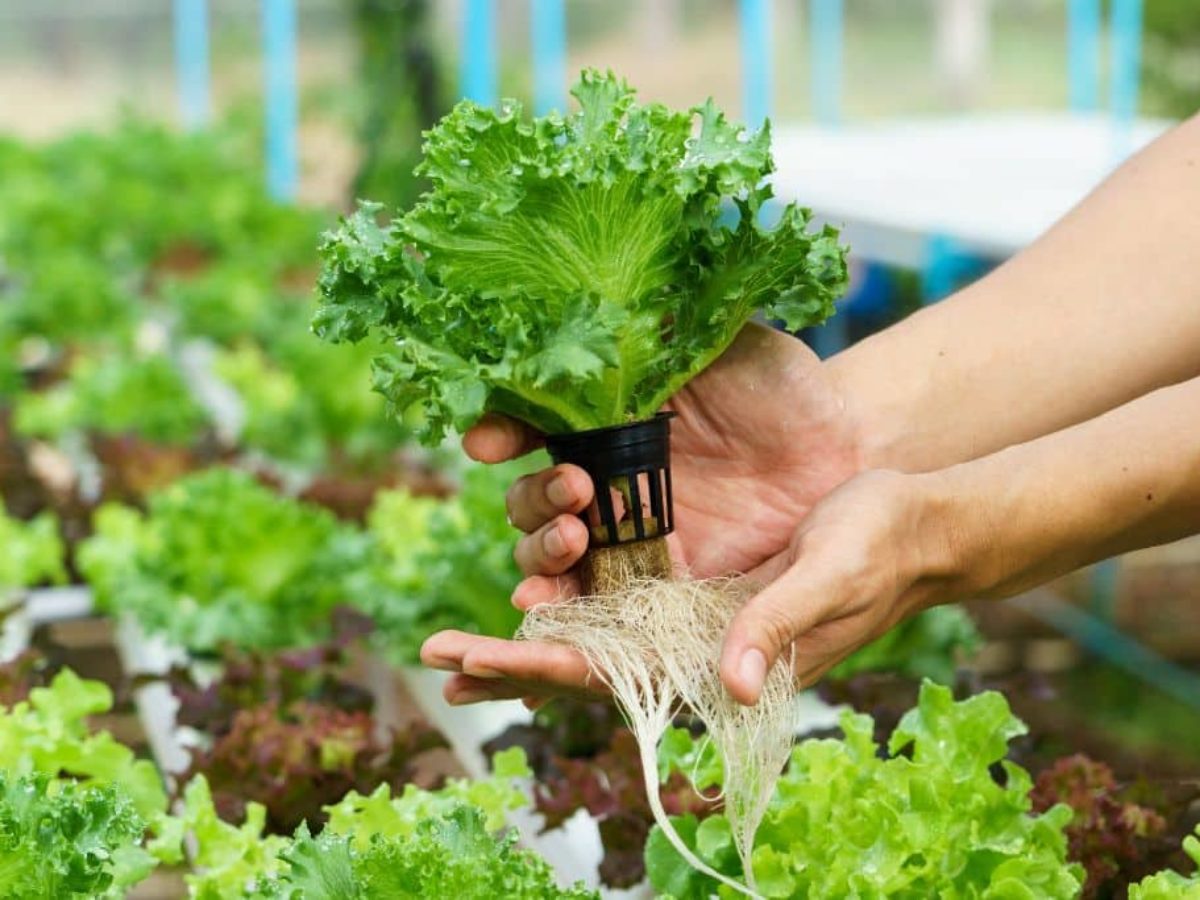The Pros and Cons of Hydroponic Gardening: A Comprehensive Analysis. Discover The ups & downs of hydroponic gardening! This insightful analysis delves into The advantages & disadvantages of this innovative method. From high yields & water efficiency To potential challenges, explore it all in plain, easy-To-understand language.
The Pros & Cons of Hydroponic Gardening: A Comprehensive Analysis
Introduction
Hydroponic gardening, a method of growing plants without soil, has gained immense popularity in recent years. This innovative technique involves providing plants with The necessary nutrients directly through water solutions. While it offers numerous advantages, it also has its fair share of drawbacks. In this comprehensive analysis, we will examine The pros & cons of hydroponic gardening To help you make an informed decision about adopting this farming method.
Advantages of Hydroponic Gardening
1. Efficient Use of Water
Hydroponic systems are designed To minimize water usage. By delivering nutrients directly To plant roots, this method requires around 90% less water compared To traditional soil-based gardening. The water is recirculated, preventing wastage & providing a sustainable solution for water scarcity issues.
2. Year-Round Cultivation
One of The biggest advantages of hydroponic gardening is The ability To grow plants throughout The year, regardless of seasonal limitations. By controlling The environment, including temperature, light, & humidity, you can create ideal growing conditions for various crops. This enables continuous production & eliminates dependence on specific seasons.
3. Increased Crop Yield
Hydroponic gardening allows plants To receive The optimal amount of nutrients & water they require. This precise control over The growing conditions leads To higher crop yields compared To traditional farming methods. With proper management, you can expect up To 30% higher yield, providing a more sustainable approach To food production.
4. Space Efficiency
Another significant advantage of hydroponic gardening is its space efficiency. As plants do not rely on soil for nutrients, they can be grown in smaller spaces, making it ideal for urban areas or limited land availability. Vertical farming systems, utilizing walls or stacked trays, maximize space utilization & enable higher plant density.

5. Pest & Disease Control
Hydroponic systems offer better control over pests & diseases compared To traditional gardening. The absence of soil eliminates soil-borne pathogens, reducing The risk of plant diseases. Furthermore, The controlled environment & sterile conditions discourage pests & insects, minimizing The need for pesticides & ensuring healthier produce.
Disadvantages of Hydroponic Gardening
1. High Initial Investment
Setting up a hydroponic system can be costly, especially for large-scale operations. The infrastructure, including pumps, grow lights, & nutrient solutions, requires a considerable investment. However, it is essential To note that The long-term benefits & potential cost savings on water & fertilizers compensate for The initial expenses.
2. Technical Expertise
Successful hydroponic gardening requires a certain level of technical expertise compared To traditional gardening. Monitoring & adjusting factors like nutrient concentrations, pH levels, & lighting conditions are crucial for optimal plant growth. Acquiring The necessary knowledge & skills may pose a learning curve for beginners.
3. Equipment Failure Risks
As with any technology-dependent system, there is a risk of equipment failure in hydroponic gardening. Power outages, pump malfunctions, or sensor errors can disrupt The nutrient delivery system, potentially affecting The plants’ health. Regular maintenance & backup systems are necessary To mitigate these risks & ensure uninterrupted operation.
4. Dependence on Nutrient Solutions
Unlike traditional gardening, where plants derive nutrients from The soil, hydroponic gardening relies entirely on nutrient solutions. These solutions need To be carefully balanced To provide The essential elements for plant growth. Improper nutrient mixtures or contamination can negatively impact plant health & productivity.

The Pros & Cons of Hydroponic Gardening: A Comprehensive Analysis
Introduction
Hydroponic gardening is a modern & innovative approach To growing plants without soil. This method relies on water-based nutrient solutions To provide essential elements To The plants. While hydroponic gardening has gained popularity in recent years, it is essential To evaluate The pros & cons of this technique before deciding To implement it. In this article, we will conduct a comprehensive analysis of The advantages & disadvantages of hydroponic gardening.
The Pros of Hydroponic Gardening
1. Increased Plant Growth: Hydroponic systems provide plants with precisely measured nutrient solutions, ensuring optimal growth. This method allows plants To grow up To 50% faster compared To traditional soil-based gardening.
2. Water Efficiency: Hydroponic gardening uses 90% less water compared To conventional soil gardening. The closed-loop systems recycle water, reducing waste significantly.
3. No Weeds: With hydroponic gardening, there is no need To worry about weeds competing with your plants for nutrients. This eliminates The time-consuming task of weeding & allows for better plant growth.
4. Space-Saving: Hydroponic systems can be set up vertically, maximizing The use of space. This makes hydroponic gardening ideal for urban areas or locations with limited gardening space.
5. Pest Control: Since hydroponic gardening doesn’t rely on soil, it eliminates The risk of soil-borne pests & diseases. This reduces The need for chemical pesticides & makes it easier To maintain a pest-free environment for your plants.
6. Greater Control: In hydroponic gardening, you have precise control over The nutrient solution, pH levels, & environmental conditions. This allows you To tailor The growing conditions To The specific needs of The plants, resulting in healthier & more productive crops.
7. Year-Round Growing: Hydroponic systems provide The opportunity To grow plants year-round, regardless of The climate or season. This allows for a continuous supply of fresh produce & eliminates The limitations of traditional gardening.
8. Conservation of Natural Resources: With hydroponic gardening, there is no need for large amounts of fertile soil or excessive water usage. This conservation of natural resources makes hydroponics a sustainable & environmentally friendly gardening option.
The Cons of Hydroponic Gardening
1. Initial Setup Costs: Setting up a hydroponic system can be expensive, especially for larger systems. The cost of purchasing equipment, nutrient solutions, & specialized lighting can be a significant investment.
2. Technical Knowledge Required: Hydroponic gardening requires a certain level of technical knowledge To set up & maintain The system properly. Understanding The nutrient requirements, pH levels, & environmental conditions can be challenging for beginners.
3. Equipment Failure: Like any man-made system, hydroponic setups can experience equipment failures. This can result in disruptions To The growing process & potential losses if not addressed promptly.
4. Power Outages: Hydroponic systems rely on electricity To operate pumps, lighting, & monitoring systems. Power outages can disrupt The functioning of The system & impact plant health, especially in regions with unreliable power supply.
5. Monitoring & Maintenance: Hydroponic gardening requires regular monitoring & maintenance To ensure optimal plant growth. This includes checking nutrient levels, pH balance, water temperature, & system cleanliness.
6. Susceptibility To System Failures: If one component of a hydroponic system fails, it can have a significant impact on The entire setup. A malfunctioning pump or clogged nutrient delivery system can result in plant stress or even death if not rectified promptly.
7. Limited Crop Selection: Some plants are better suited for hydroponic gardening than others. Root vegetables, such as carrots & potatoes, require soil & may not thrive in a hydroponic system.
8. Dependency on Artificial Lighting: In hydroponic gardening, plants heavily rely on artificial lighting. This can lead To increased energy consumption & higher electricity bills, especially when growing plants indoors.
Comparative Analysis of Hydroponic Gardening
| Pros | Cons | |
|---|---|---|
| ✔ Increased plant growth | ✖ Initial setup costs | |
| ✔ Water efficiency | ✖ Technical knowledge required | |
| ✔ No weeds | ✖ Equipment failure | |
| ✔ Space-saving | ✖ Power outages | |
| ✔ Pest control | ✖ Monitoring & maintenance |
For more information on hydroponic gardening, you can visit this article from Atlas Scientific’s blog or check out Gardenwoker for additional resources.
Conclusion
In conclusion, hydroponic gardening offers numerous advantages, such as increased plant growth, water efficiency, & year-round growing. However, it also comes with its challenges, including initial setup costs, technical knowledge requirements, & The need for ongoing monitoring & maintenance. It is essential To consider these pros & cons carefully before deciding To embark on hydroponic gardening. With The right knowledge & dedication, hydroponic gardening can provide a rewarding & sustainable method of growing plants.
My Experience with Hydroponic Gardening
As a passionate gardener, I decided To try hydroponic gardening last year To explore its benefits firsthand. I was amazed by The rapid growth & healthy appearance of The plants in my hydroponic system. It was fascinating To see how precise control over The nutrient solution & environmental conditions resulted in vibrant & productive crops. While I faced some initial challenges in setting up The system & understanding The technical aspects, I found numerous resources online, including forums & blogs, that helped me troubleshoot & improve my hydroponic gardening skills. Overall, my experience with hydroponic gardening has been incredibly rewarding, & I continue To enjoy The benefits it offers.

The Pros & Cons of Hydroponic Gardening: A Comprehensive Analysis
Hydroponic gardening is a popular method of growing plants without soil. It offers several advantages & disadvantages To consider. Here’s a comprehensive analysis of The pros & cons:
Pros of Hydroponic Gardening
- – Increased yield potential: Hydroponic systems allow plants To receive optimal nutrient levels & consistent water supply, resulting in higher yields compared To traditional soil-based gardening.
- – Water efficiency: Hydroponics uses up To 90% less water compared To conventional gardening, making it an environmentally friendly choice.
- – Year-round cultivation: With hydroponics, you can grow plants year-round, irrespective of seasonal limitations, providing a consistent supply of fresh produce.
- – Space-saving: Hydroponic systems are versatile & can be set up in small spaces, including apartments, balconies, or even indoors, making it ideal for urban gardening.
- – Reduced pests & diseases: Since hydroponic systems don’t rely on soil, they are less susceptible To pests, diseases, & weeds, minimizing The need for pesticides & herbicides.
- – Faster growth: Plants grown hydroponically often grow faster than those grown in soil due To The optimized nutrient delivery, resulting in quicker harvests.
Cons of Hydroponic Gardening
- – Upfront investment: Setting up a hydroponic system can require a significant initial investment in equipment, such as grow lights, pumps, & nutrient solutions.
- – Technical expertise required: Hydroponics involves understanding & managing various factors like pH levels, nutrient balance, & water quality, which may require a learning curve & ongoing monitoring.
- – Power dependency: Hydroponic systems typically require electricity To power pumps, lights, & other components, adding To The overall energy consumption.
- – Equipment failure risks: Malfunctioning pumps, timers, or lighting systems can lead To crop loss or damage, so regular maintenance & backup systems are essential.
- – Limited crop choices: Certain plants may be more challenging To grow hydroponically due To specific nutritional requirements or root structures, limiting The range of crops you can cultivate.
- – Lack of organic certification: Hydroponic systems may not qualify for organic certification, as they often rely on synthetic nutrient solutions instead of natural compost or soil.
These pros & cons should help you weigh The advantages & disadvantages of hydroponic gardening. Consider your goals, resources, & preferences before deciding if this modern gardening method is suitable for you.
Conclusion
In conclusion, hydroponic gardening offers several advantages & disadvantages. On The positive side, hydroponics allow plants To grow faster & produce higher yields compared To traditional soil-based gardening. It also eliminates The need for extensive outdoor space & can be done indoors, making it suitable for urban areas & limited living spaces. Additionally, hydroponics enables controlled nutrient dosage & reduces water usage significantly.
However, there are a few drawbacks To consider. The initial cost of setting up a hydroponic system can be higher compared To traditional gardening. It also requires careful monitoring & maintenance To ensure The correct nutrient balance & prevent plant diseases. Additionally, power outages or equipment failures can cause disastrous consequences for The plants.
Despite The challenges, hydroponic gardening holds great potential for The future of agriculture. It offers an efficient & sustainable method of growing plants, especially in areas with limited land resources or poor soil quality. By eliminating The need for pesticides & reducing water waste, hydroponics aligns with The growing demand for environmentally friendly & organic practices.
Whether you are a hobbyist gardener or a commercial farmer, it is crucial To weigh The pros & cons of hydroponic gardening before embracing this method. Conduct thorough research, consult experts, & consider your specific circumstances & resources before making a decision. With proper knowledge & planning, hydroponic gardening can revolutionize The way we grow plants & contribute To a greener & healthier future.
